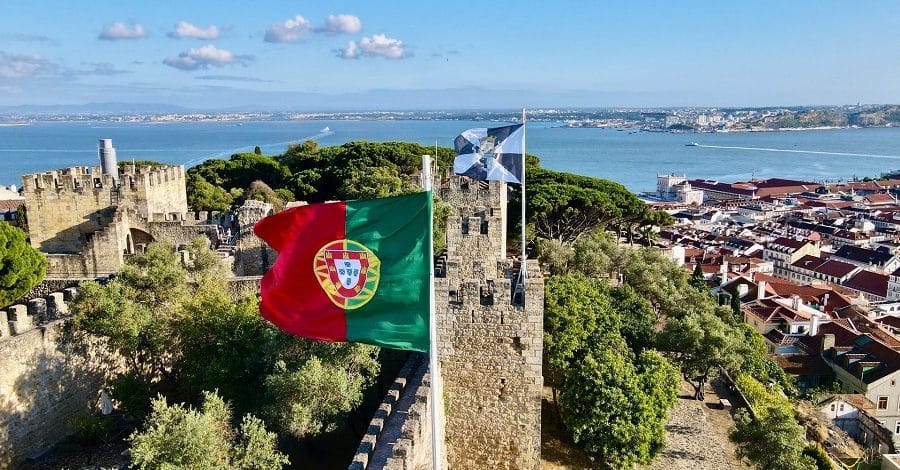If you’re considering a move abroad to Portugal, there’s some fresh news you need to be aware of. On June 3, 2024, the Portuguese government unveiled a comprehensive Action Plan for Migration, introducing 41 new measures aimed at tightening migration controls, addressing backlog issues, and updating border systems, according to Portugal.com. Here’s a rundown of what this means for you.
Ending the Expressions of Interest Procedure
The most significant change is the termination of the Expressions of Interest procedure. Previously, this allowed people to enter Portugal as tourists, find jobs, and then gain legal residency after paying into the Social Security system for 12 months. Now, anyone seeking residency will need to apply at their local Portuguese consulate and secure temporary residency before entering Portugal. However, ongoing cases that meet the old requirements will still be processed under the previous law.

Boosting Consular and Visa Processing Capacity
To handle the influx of applications more efficiently, Portugal plans to add about 45 new visa analysts at consular posts. This aims to streamline entry channels, especially for regrouping families, young students, qualified professionals, and nationals of the Community of Portuguese Language Countries (CPLP). Family reunification will now prioritize young people up to 18 years old. Additionally, students with visas or residence permits can stay in Portugal longer after graduation to look for employment.
Tackling Backlogs and Improving Border Control
One pressing issue is the backlog of immigration cases, with approximately 400,000 pending requests. The new plan includes urgent measures to enhance border control infrastructures, IT systems, and databases, particularly at busy airports like Lisbon and Faro. The goal is to reduce congestion and delays, ensuring smoother entry and exit for travelers.
Expanding Temporary Housing and Asylum Procedures
Portugal will increase the capacity of temporary installation centers in Faro, Lisbon, and Porto, and build new ones to accommodate foreign citizens. The government also plans to streamline the appeals process for immigration and asylum-related cases, ensuring more efficient handling of these matters.
Enhancing Language Training and Professional Integration
An audit of language training procedures for obtaining Portuguese nationality is in the works, along with a system to attract human capital aligned with national labor needs. The plan aims to improve the recognition of qualifications and competencies and promote professional training for foreign citizens settling in Portugal. A Labor Needs Survey will be launched to recruit foreign workers effectively.

Supporting Students and Refugees
To attract more foreign students, Portugal will increase scholarships and promote attendance at educational institutions. Cooperation with NGOs will be strengthened to expand reception centers for asylum seekers and refugees, and specialized residential units will be enhanced to respond to emergencies.
Promoting Health and Social Integration
The new measures will ensure immigrants have better access to the National Health Service, including information on their rights and duties. A new instrument called Residence Permits for Social Investment will be introduced, allowing private capital to fund social projects aimed at integrating immigrants. This is a shift from the traditional Residence Permits for Investment (ARI), focusing more on social support.
Strengthening Immigration Management
The plan includes creating a Foreigners and Borders Unit (UEF) and restructuring the Agency for Integration, Migration, and Asylum (AIMA) by removing its decision-making powers in return processes. Instead, these responsibilities will fall to the Migration and Asylum Council. AIMA’s operational capacity will be bolstered with more human resources and technological upgrades to handle future assignments better.
Automating and Decentralizing Services
The competence for face-to-face renewal requests of residence permits will shift from the Institute of Registries and Notaries (IRN) to AIMA. This change aims to enhance service efficiency and immigrant regularization processes. The Migration Observatory will be restored as a state body to monitor migratory trends and inform public policy.
Creating Local Support Centers
To decentralize the integration and regularization response, new Local Support Centers for Migrant Integration will be established. These centers will play a crucial role in supporting immigrants at the local level, ensuring they receive the assistance they need promptly.
Portugal’s new migration plan represents a significant shift in how the country manages immigration, focusing on efficiency, integration, and support for both immigrants and the national economy. If you’re planning to move to Portugal, it’s recommended to stay informed about these changes and prepare accordingly. Whether it’s applying for residency, understanding new visa processes, or knowing where to seek help, being well-informed will make your transition smoother and more successful.

